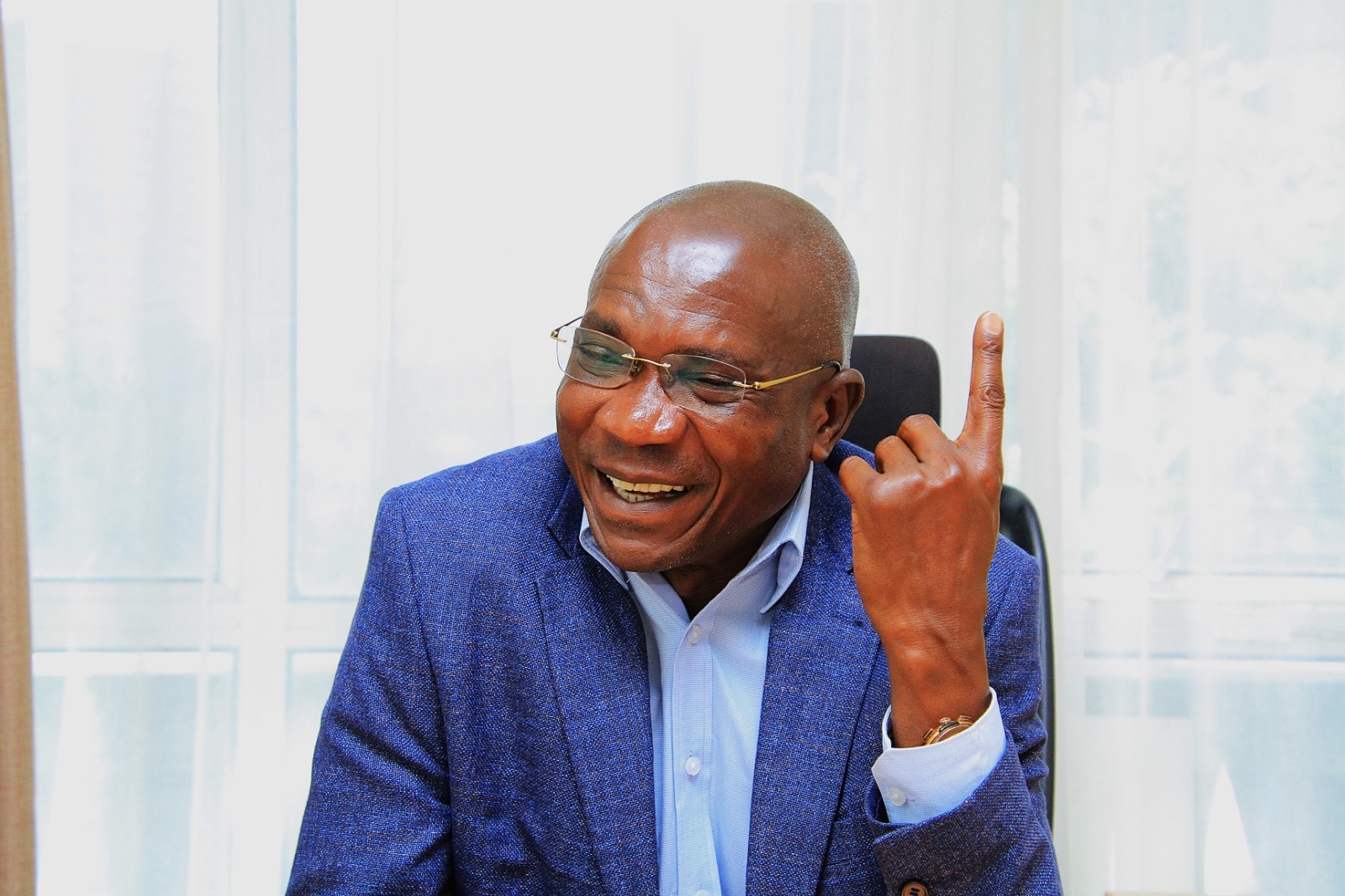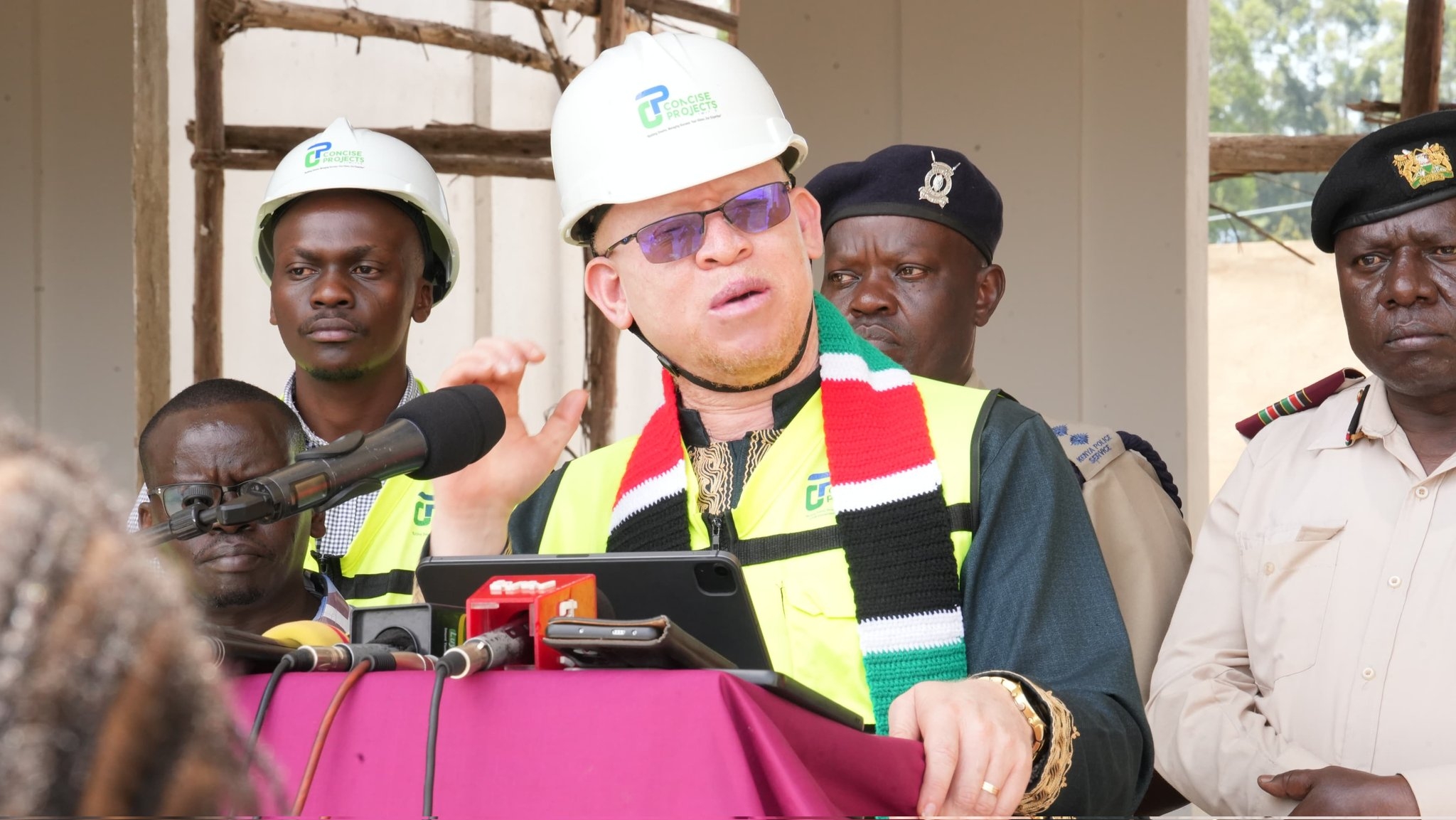Njuki Githethwa is a Kenyan writer, activist and independent scholar. He is the director of Comrades Book House. This is a literary collective in Kenya that specialises in nurturing and promoting African literature. The energetic scribe serves in the management committee of Ukombozi Library.
Ukombozi is one of the vibrant contemporary book hubs and a meeting space for scribes, students and sages located in Nairobi’s Central Business District. Here, bibliophiles rendezvous for reading, sharing, discussing and reflecting on progressive books, publications and ideas, among other engagements by social justice activists.
Over the past one and a half decades, Njuki has been actively engaged in the struggles for social justice in Kenya and elsewhere. He tries to link activism on social justice with arts and literature. He mentors younger writers to place the services of their pen to the service of mankind and the quest for justice.
A prolific penman himself, he has been published in local and international journals and magazines of note, such as: Pambazuka, Awaaz, Review of African Political Economy, Ujamaa Voice, New People, Jahazi and Zinduka Digest.
Currently, he is the managing editor of Ukombozi Review, an online publication whose mission is to amplify, reflect and connect progressive people’s struggles in Kenya and Pan Africanism.
To this middle-aged Kenyan, literature is his first love. They say each dark cloud bears a silver lining. The dark cloud of Covid 2019 brought a silver lining to Njuki Githethwa. On November 11, 2020, deep in the corona moment, he set up what he calls the ‘home of African literature’ at Mwimuto shopping centre in Lower Kabete. He named it: Comrades Book House.
Njuki conceived it as a social enterprise to play a role in changing mindsets and increasing appreciation of African writers and literature today beyond the classrooms. Granted, literature is a key subject in Kenyan schools and varsities, but many lose their touch with it after their educational training. He seeks to make a contribution towards nurturing bibliophilia among Kenyans.
Comrades Book House promotes African writers and literature of genres including novels, drama, short stories, poetry, creative non-fiction and orature. It also serves as a library and a bookshop of African literature.
Using his new book hub as a launching pad, Njuki mooted the idea of holding monthly celebration, reflection and promotion of departed, living and younger writers from Kenya and in Africa at large, and sold the idea to five literary collectives: Comrades Books House, Going Down River Road, Books of Kenya, Rafinki and Cheche Books & Cafe.
A resultant effect of this wonderful collaboration between teams of literary arts across the city comes in the form of a unique calendar that honours our departed scribes each month. Comrades Book House has been producing a literary calendar for African writers since 2020.
This year, Njuki reached out to the five active literary collectives mentioned above to be part of this initiative. The wonderful calendar for this year, therefore, focuses on writers from East Africa. So far, writers from Kenya, Uganda, Tanzania and even Rwanda have been featured. Next year going forward, writers from other regions will be given their limelight, too.
Githethwa is the one responsible for the archival research and documentation of the profiles of each writer for the calendar. He bases their month of feature on the basis of the month of their demise. For example, the month of March features the late Grace Ogot, the late Charles Mangua and the late Gakaara wa Wanjau. The three are prominent in the literary heritage of postcolonial Kenya.
The idea has picked up well and today, the various collectives market and sell the literary calendars, among other articles, as mementoes, but also to support the monthly events. The collaboration has encouraged the five literary networks to come up with the idea of hosting monthly live reflections and exhibitions of books on our departed and living writers going forward.
As he runs the Comrades Book House, he doubles up as the managing editor of the Ukombozi Review, whose editorial committee includes: Kimani Waweru, Abdulqadir Abdilahi Nasser, Noosim Naimasiah and the erudite intellectual Njoki Wamai.
The journal is supported by the Rosa Luxemburg Stiftung from Germany as it enhances eye-opening conversations around topical matters of leadership, justice and peace from the perspectives of the political left.
The Njuki Githethwa-led Ukombozi Review is a must-visit online knowledge discovery site, featuring blogs, book reviews, cartoons, graffiti, poetry, pictures and discourses at https://ukombozireview.com/
It is the energy and devotion that this Kenyan writer invests in nurturing the reading culture in Nairobi and its environs that is infectious. He has become one of the important figures of the current Kenyan literary scene.
His selflessness attracts many writers and critics to his world of books. Some of the prominent visitors to the Comrades Book House outlet he runs at Lower Kabete are Stella Nyanzi, the revolutionary poet from Uganda, and Mukoma wa Ngugi, the prominent writing son of Ngugi wa Thiong’o. Both scholars are leading lights of contemporary East African literature.
Njuki Githethwa’s point of strength is his grassroots mobilisation and coordination of diverse spaces of cultural discourse in the pursuit of arts and social activism, or what is called Artivism today. His story is a microcosm of literature in the service of both mankind and the motherland.
















